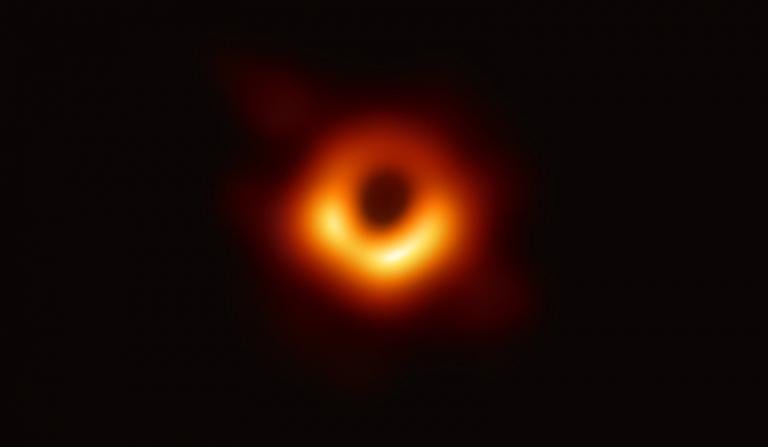
Scientists are still celebrating the black hole image that was released a few days ago, and pondering its significance:
“10 Deep Lessons From Our First Image Of A Black Hole’s Event Horizon”
Incidentally, one of the scientists mentioned in the third of the three articles above is the great John Archibald Wheeler (1911-2008), who popularized the phrase black hole. In that context, you might be interested to read the testimony of B. Kent Harrison on the “Mormon Scholars Testify” website. (Yes, I’ll eventually get around to changing the name of that site. Don’t worry!) Professor Harrison studied with Professor Wheeler at Princeton, and, as his biography at “Mormon Scholars Testify” indicates, co-authored a book with him: Gravitation Theory and Gravitational Collapse (Chicago, 1965).
The article also mentions the German mathematical physicist and astronomer Karl Schwarzschild (1873-1916), who, in 1915, arrived at the first exact solution to the field equations of in Albert Einstein’s theory of general relativity, which was itself introduced that year. Effectively, Schwarzschild deduced the likely existence of black holes. He accomplished this while he was serving in the German army during the First World War. Unfortunately, he died the following year from an autoimmune disease that he had contracted on the Russian front, at the age of just 42.
Karl Schwarzschild represents yet another tragic example of human potential remaining unfulfilled in this life — and yet another reason to hope that there is a life beyond this one. (See also “Beethoven is a study in hope, healing.”)
***
Was Mars once partially covered by a sea of liquid water, or was it not?
“The Paradoxes of a Martian Ocean”
***
***
“The Denisovans May Have Been More Than a Single Species”
Write your family history now, before it becomes even more complex.
***
A bit more recent, though still quite ancient:
***
Opinions vary about whether Netanyahu’s reelection was bad news for Israel. But this definitely is:
Posted from San Diego, California











